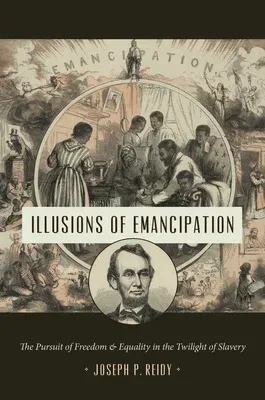Joseph P Reidy
(Author)Illusions of Emancipation: The Pursuit of Freedom and Equality in the Twilight of SlaveryPaperback, 1 August 2020

Qty
1
Turbo
Ships in 2 - 3 days
In Stock
Free Delivery
Cash on Delivery
15 Days
Free Returns
Secure Checkout
Part of Series
Littlefield History of the Civil War Era
Print Length
520 pages
Language
English
Publisher
University of North Carolina Press
Date Published
1 Aug 2020
ISBN-10
146966156X
ISBN-13
9781469661568
Description
Product Details
Author:
Book Format:
Paperback
Country of Origin:
US
Date Published:
1 August 2020
Dimensions:
23.39 x
15.6 x
2.95 cm
ISBN-10:
146966156X
ISBN-13:
9781469661568
Language:
English
Location:
Chapel Hill
Pages:
520
Publisher:
Weight:
789.25 gm

